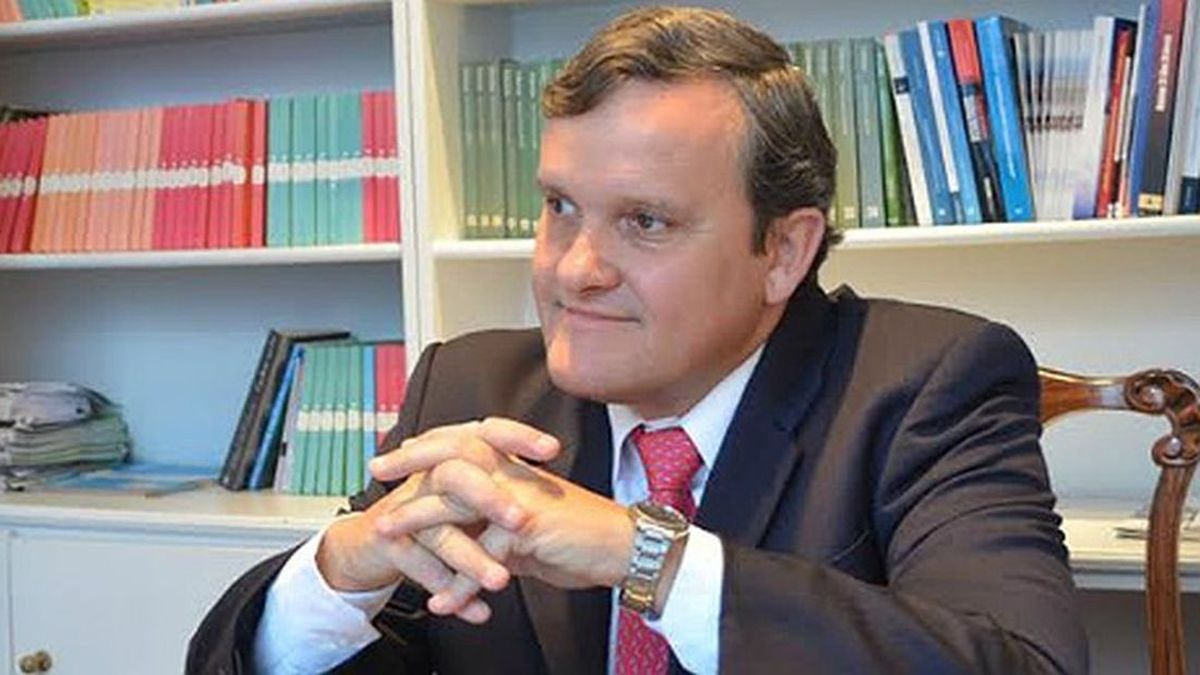Abram reveals that Sturzenegger He is determined to carry out his project, but he assures that his role within the Government, if he joins as an official, will be different from that of the Minister of Economy, which is why he considers coexistence between the two to be feasible.
Aldo Abram: The role that Sturzenegger plays in Milei’s government is absolutely different from that of Caputo. He is not thinking about being Minister of Economy, but rather about implementing a plan that, in fact, with Libertad y Progreso, we helped develop. At that time, he was part of Patricia Bullrich’s team and was thinking about a plan for deregulation and, perhaps, reform of the State. His work has to do with changing or eliminating laws so that the forces of work, creativity and entrepreneurship are released and Argentina can grow, which has nothing to do with the role that Caputo has today, not even in the Bank. Central. The Minister of Economy is for a different type of management; in fact, his team is not actively working on the State reform part because they have thousands of other problems.
Q.: Although Milei identifies with liberalism, his colleagues, such as Roberto Cachanosky or Carlos Rodríguez, have criticized his management, linked to the postponement of increases, exchange regulations and monetary issuance. Do you think ideology was put aside in these six months?
AA: It is true that the Government currently receives criticism from the side of liberalism. However, the President himself clarified that he is moving towards liberalism, but considers that, after having found a BCRA absolutely bankrupt, without its own reserves, using more than US$11,000 million from outsiders and a phenomenal fiscal imbalance, he could not openly launch to economic liberalism, but had to generate a transition. I am also not one of those who think that he would have done everything as it was done in this administration until now. The reality is that we must recognize some successes, such as closing the fiscal gap and stopping inflation., but many of us still criticize the fact of maintaining the stocks and not having gone to exchange rate unification. They are moving forward to end the hyperinflationary process and for the Central Bank to have a certain level of solidity to unify the exchange rate and get out of the trap. They are taking safe steps, that is what I believe characterizes this administration, but it implies a slower transition than many of us liberals would have liked.
Q: How far are you from removing the trap? Can all the conditions be met together to do so (positive rate, zero deficit, low gap, slowing inflation, etc.), or do we have to give up some element?
AA: To get out of the trap, I would have gone for an exchange rate unification first, as the Cambiemos government did, and then I would have eliminated the restrictions, regulations and patches that maintain an artificially fixed exchange rate. In any case, the Government is complying with the steps it needs to get out of the trap with an irrelevant risk. What is fundamentally missing is for the fiscal package to be approved, to limit the income from the COUNTRY tax. Once it leaves, the conditions they consider necessary to leave with low risk will be met and in a few weeks they will end up unifying the exchange rate.
Q.: Former Minister of Economy Domingo Cavallo warns of an interrupted disinflation process that will remain around 4% or 5%. Do you agree with this idea?
AA: That inflation does not continue to decline makes sense because all the value of the currency destroyed during the previous administration is reflected for months in all goods and services. Furthermore, thinking that a Central Bank, which has been left absolutely bankrupt, can immediately result in single-digit inflation is impossible. It will take time for the BCRA to recover and have a minimum solvency, today we cannot say that it has it.
Q.: Do you think that, as Fausto Spotorno, Milei’s economic advisor, said, this is “a transition plan”? If so, should we approach the second semester as a new stage?
AA: A second stage has to come, that’s for sure, because so far what is being done is what I would call a zero-risk stabilization plan. What characterizes this Government is not taking a step without being sure of being able to do so. I think the reason for this is more political. Because? Because they know that everyone is trying to put sticks and stones so that they trip. The ruling party maintains little support within Congress, it must be taken into account that it is the first democratic government that has not approved a single law in six months of administration. There are a lot of business corporations, unions, intellectuals and professionals that for decades have achieved regulations, protections, restrictions, privileges and subsidies that do not go to the poor but to all of them. That is what they are trying to eliminate, that is why they do not act boldly, but rather go step by step. But a second stage will come in which all the liberal measures will be implemented together with the same team, with the incorporation of Sturzenegger.
Q.: Do you think it is necessary for there to be new funds from the Monetary Fund, within the framework of a new agreement? Why would the organization, after Macrista’s experience, lend more money to Argentina again?
AA: Whenever they lend you money, the transition process to a normal economy becomes easier. You have to grit your teeth, make a sacrifice, solve the problem and then enjoy the benefits. That is what the IMF is. In any case, disbursing new funds is not absolutely necessary. If the IMF continues to refinance the forward maturities it would be enough, but it is true that the more dollars it lends you, the less socially and politically costly it will be to solve the problems. The truth is that the Cambiemos government made a big mistake, which was not facing the problems and that was what brought about the previous frustration. The problems, far from getting smaller, ended up getting bigger until they led to a crisis in 2018. In this case, what the IMF observes is that the Government explained everything that had to be done without the organization asking it. That is why the IMF is much more inclined to help a government that says “I grit my teeth and solve the problems,” without delaying them.
Q.: Even with the Bases Law approved, falling inflation and a renewed swap, the markets have had days of poor performance. What do you think the fall is attributed to?
AA: Saying that bonuses continue to fall when the Bases law is approved seems to me to be unreasonable, because it has not yet been sanctioned, nor has the fiscal package, which was diluted in the Senate in such a way that it leaves a lot to be desired. If Deputies accepted the changes in their entirety, it would be a bad sign. That is why there are doubts in the market. What would happen if they insisted on their own project? I think it would be a very good sign for everyone, a small step, no longer a leap as was intended with the original law. The markets would react well, people would have more confidence in Argentina and there would be more consumption, more investment, and we could think of a stronger recovery.
Source: Ambito




